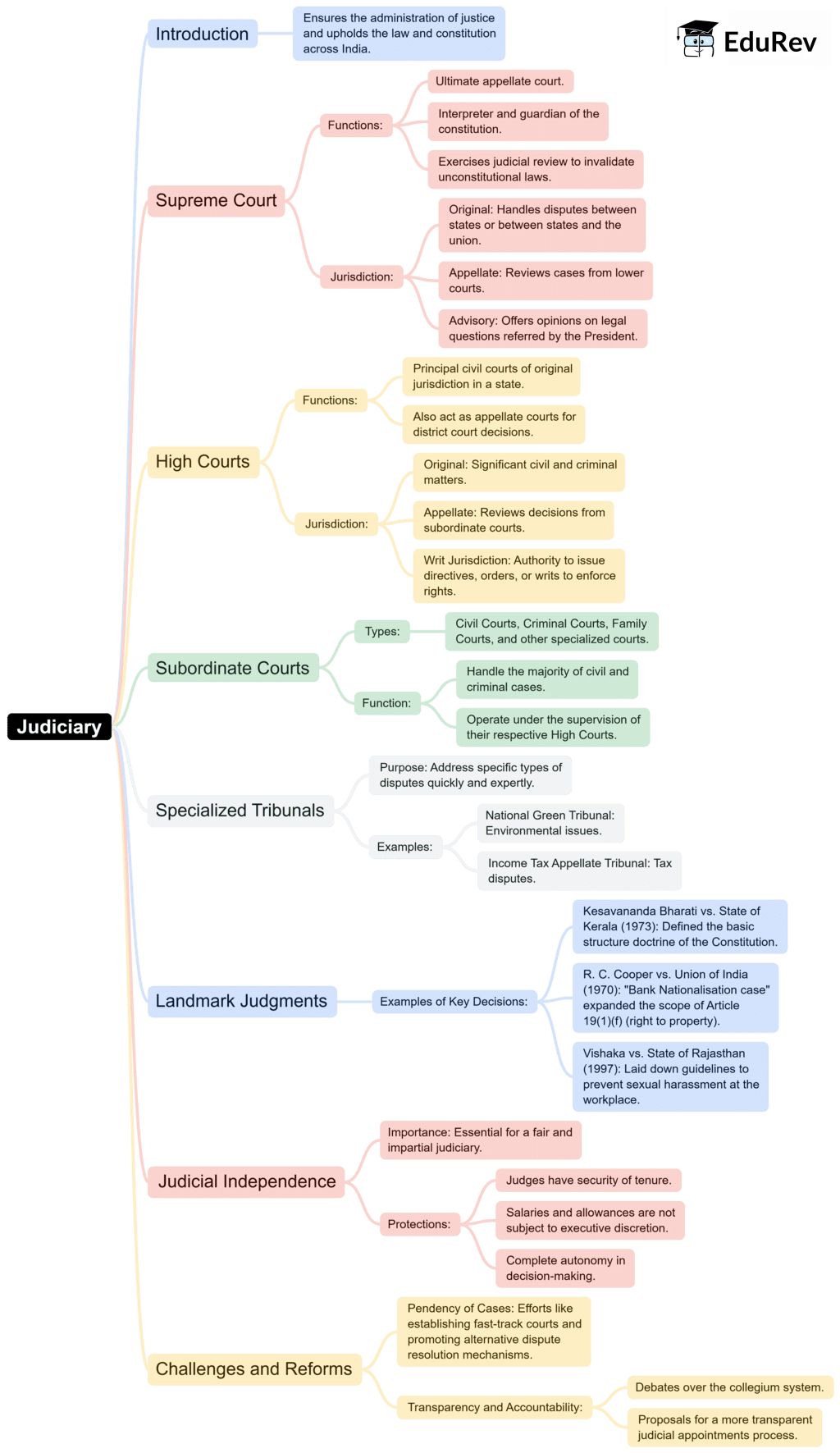Humanities/Arts Exam > Humanities/Arts Notes > Legal Studies for Class 12 > Mind Map: Judiciary
Mind Map: Judiciary | Legal Studies for Class 12 - Humanities/Arts PDF Download

The document Mind Map: Judiciary | Legal Studies for Class 12 - Humanities/Arts is a part of the Humanities/Arts Course Legal Studies for Class 12.
All you need of Humanities/Arts at this link: Humanities/Arts
|
98 videos|69 docs|30 tests
|
FAQs on Mind Map: Judiciary - Legal Studies for Class 12 - Humanities/Arts
| 1. What is the role of the judiciary in a democratic system? |  |
Ans. The judiciary is responsible for interpreting and applying the law, ensuring justice, and protecting the rights of individuals. It acts as a check on the powers of the executive and legislative branches, maintaining the rule of law and upholding the constitution.
| 2. How does the judiciary ensure the protection of individual rights? |  |
Ans. The judiciary protects individual rights by interpreting constitutional provisions and laws that guarantee these rights. It can provide remedies for violations through judicial review, where courts can invalidate laws or actions that infringe upon rights.
| 3. What are the different levels of courts within the judiciary? |  |
Ans. The judiciary typically consists of multiple levels of courts, including trial courts, appellate courts, and supreme or constitutional courts. Trial courts handle initial cases, appellate courts review decisions made by trial courts, and supreme courts deal with significant legal issues and constitutional matters.
| 4. What is judicial review, and why is it important? |  |
Ans. Judicial review is the power of the judiciary to examine laws and government actions to determine their constitutionality. It is important because it helps to safeguard democracy by preventing the enactment of laws that violate constitutional rights and by ensuring that government actions are lawful.
| 5. How can citizens engage with the judiciary? |  |
Ans. Citizens can engage with the judiciary by exercising their right to petition the courts, seeking legal representation, participating in trials as jurors, and being informed about their rights. Public awareness and education about legal processes also promote active citizen involvement in the judicial system.
Related Searches
















